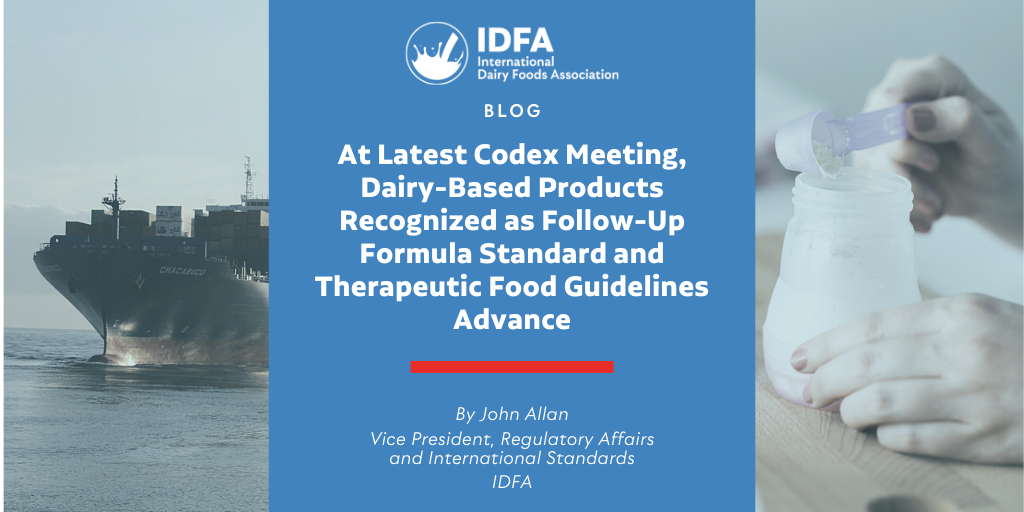The U.S. dairy industry annually exports more than $5 billion in product – from cheese to whey to ice cream to skim milk powder and everything in between. The ease of trade can, in part, be attributed to the fact that many nations around the world have adopted or based national regulations on food standards developed by the United Nations’ Codex Alimentarius Commission (CAC).
The Commission brings together scientists, technical experts, and government regulators, as well as international consumer and industry organizations, to develop international food standards aimed at protecting the health of consumers and ensuring fair practices in food trade.
Due to the coronavirus pandemic, the latest Commission meeting, which was originally set to be held in July, held a precedent-setting first round of sessions in an online, virtual format, from Sept. 25-27, and will reconvene on Oct. 12 and 19 to complete its agenda for this year’s meeting, which is intentionally focused on progressing work through the multi-step Codex standard development process on non-controversial items. Those items where clear consensus cannot be achieved or further discussion is needed will be referred to the specific Codex technical committees for further work.
To ensure IDFA has a voice in the international forum, I attended the virtual sessions just I have the live sessions for many years, in communication with the U.S. government and the International Dairy Federation delegations on important priorities for the dairy sector. The following topics were addressed during the Commission’s agenda:
Codex Advances Follow-Up Formula Standard
IDFA has spent years working on numerous issues within this standard. Not only do these products utilize dairy ingredients, but the industry has fought to protect the critically important science-based principles of Codex standard-setting. Important progress was made at last year’s Codex nutrition committee meeting, particularly as it relates to whether products for young children (12-36 months category) are considered breastmilk substitutes. Despite objections raised by a number of activist Codex observer organizations, the Commission agreed to advance the text to the next and final stage of development of the standard, which goes a long way in safeguarding this important progress while allowing the remaining provisions of importance to the industry that require attention to be addressed at the next Codex nutrition committee. The next nutrition committee meeting, which was scheduled for this November, was cancelled due to the pandemic and has not yet been rescheduled.
Dairy Protein Quality Recognized and Trans Fat-Free Claim Work Stopped
The Commission also adopted draft guidelines for production of Ready-to-Use Therapeutic Foods—products used to rehabilitate severely malnourished children, especially in developing world countries impacted by famine. Due to persistent advocacy by the dairy industry, we ensured the guidelines include language referencing dairy as a high-quality protein source necessary to support recovery of this vulnerable population and that such products must contain at least 50 percent dairy protein. This document will also advance to the final stage of development and we hope finalized at the next nutrition committee meeting.
The Commission also agreed to a recommendation from the nutrition committee to stop work on “trans fat-free” claims that could have created a dangerous precedent in Codex labeling standards and did not differentiate between ruminant and commercially produced trans fats.
IDFA will attend the final sessions of the Commission meeting later this month and update members on any significant outcomes. Please contact John Allan at jallan@idfa.org with any questions.
IDFA Staff Expert

John Allan
Vice President, Regulatory Affairs and International Standards

